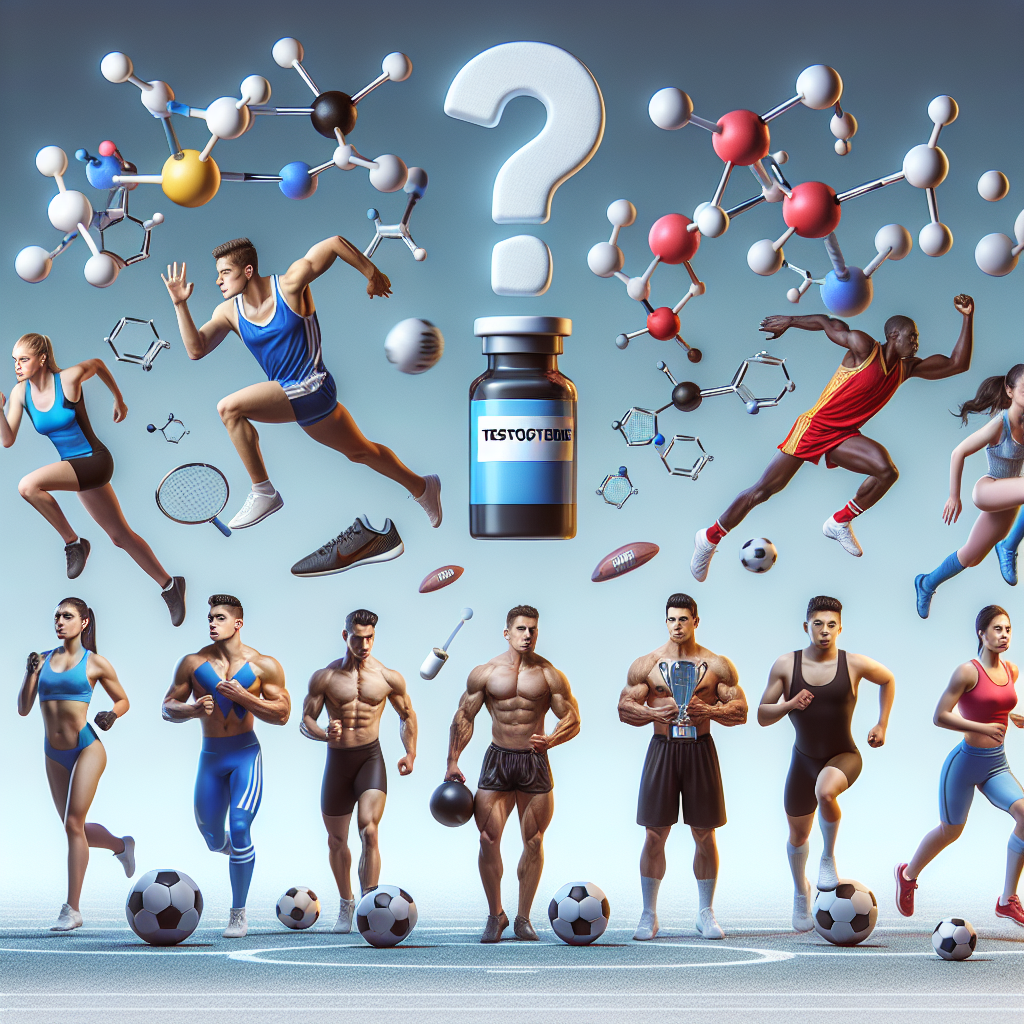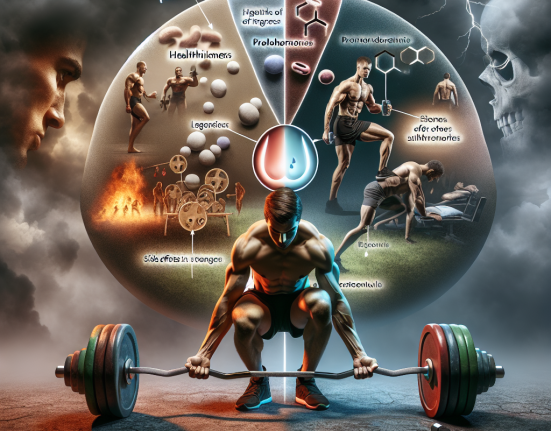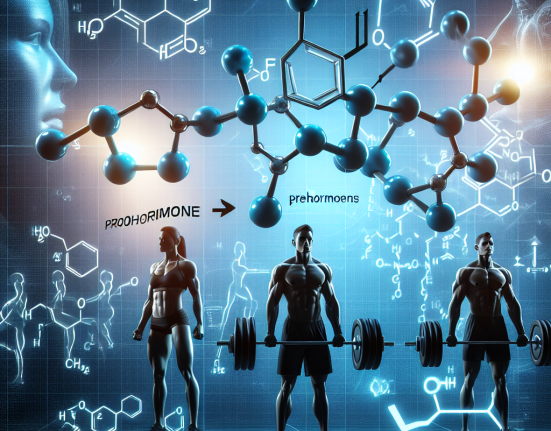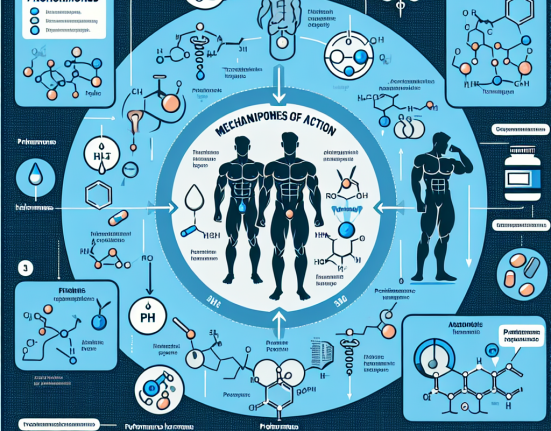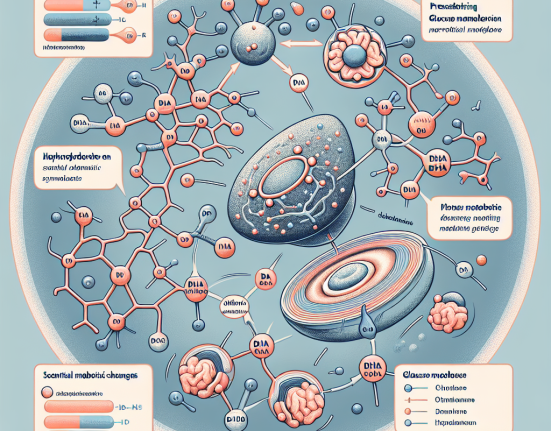-
Table of Contents
Testosterone: An Ally for Athletes?
Testosterone is a hormone that is often associated with masculinity and strength. It is a key player in the development of male characteristics, such as muscle mass, bone density, and body hair. But beyond its role in gender identity, testosterone also plays a crucial role in athletic performance. In recent years, there has been a lot of controversy surrounding the use of testosterone in sports, with some arguing that it gives athletes an unfair advantage. However, when used responsibly and under medical supervision, testosterone can be a valuable ally for athletes looking to improve their performance.
The Role of Testosterone in Athletic Performance
Testosterone is a naturally occurring hormone in the body, produced primarily in the testes in men and in smaller amounts in the ovaries and adrenal glands in women. It is classified as an androgen, meaning it promotes the development of male characteristics. In addition to its role in gender identity, testosterone also plays a crucial role in athletic performance.
One of the main ways testosterone affects athletic performance is by increasing muscle mass and strength. Testosterone stimulates the production of protein in muscle cells, leading to an increase in muscle size and strength. This is why men, who naturally have higher levels of testosterone, tend to have more muscle mass and strength than women.
Testosterone also plays a role in bone density, which is important for athletes who engage in high-impact activities. Studies have shown that testosterone can increase bone mineral density, making bones stronger and less prone to injury. This is especially beneficial for athletes who participate in sports that put a lot of stress on their bones, such as weightlifting or football.
In addition to its physical effects, testosterone also has psychological benefits for athletes. It has been linked to improved mood, motivation, and aggression, all of which can contribute to better athletic performance. Testosterone has also been shown to improve cognitive function, which can be beneficial for athletes who need to make quick decisions on the field or court.
The Controversy Surrounding Testosterone in Sports
Despite the many benefits of testosterone for athletes, its use in sports has been a topic of controversy. Some argue that athletes who use testosterone have an unfair advantage over those who do not, giving them an edge in competition. This has led to strict regulations and testing protocols in professional sports leagues to prevent the use of performance-enhancing drugs, including testosterone.
However, it is important to note that not all testosterone use in sports is considered cheating. In fact, testosterone replacement therapy (TRT) is a common treatment for men with low testosterone levels. TRT involves the use of testosterone to bring levels back to a normal range, and it is often prescribed by doctors for men who have a medical need for it. In these cases, the use of testosterone is not considered cheating, as it is being used for legitimate medical purposes.
Furthermore, studies have shown that testosterone levels can vary greatly among individuals, and having naturally high levels of testosterone does not necessarily guarantee athletic success. Other factors, such as training, nutrition, and genetics, also play a significant role in athletic performance.
The Responsible Use of Testosterone in Sports
While there may be controversy surrounding the use of testosterone in sports, it is important to recognize that when used responsibly and under medical supervision, it can be a valuable tool for athletes. Testosterone should never be used without a prescription or medical supervision, as it can have serious side effects if not used properly.
It is also important for athletes to be aware of the regulations and testing protocols in their respective sports leagues. If an athlete has a legitimate medical need for testosterone, they should work closely with their doctor and the league to ensure they are in compliance with all rules and regulations.
Additionally, athletes should be mindful of the potential side effects of testosterone use, which can include acne, hair loss, and changes in mood and behavior. These side effects can be managed with proper monitoring and dosage adjustments, but it is important for athletes to be aware of them and communicate openly with their doctor.
Real-World Examples of Testosterone Use in Sports
There have been several high-profile cases of athletes using testosterone in sports, both legally and illegally. One example is former Olympic sprinter Ben Johnson, who was stripped of his gold medal in the 100-meter dash at the 1988 Olympics after testing positive for steroids, including testosterone. This incident sparked a major crackdown on performance-enhancing drugs in sports and led to stricter testing protocols.
On the other hand, there are also examples of athletes using testosterone legally for medical purposes. UFC fighter Chael Sonnen was granted a therapeutic use exemption (TUE) for testosterone replacement therapy in 2012, after being diagnosed with hypogonadism, a condition that causes low testosterone levels. Sonnen was able to continue competing in the UFC with the use of TRT, as long as he followed all regulations and testing protocols.
Conclusion
In conclusion, testosterone can be a valuable ally for athletes looking to improve their performance. Its role in increasing muscle mass, bone density, and psychological factors make it a key player in athletic success. While there may be controversy surrounding its use in sports, when used responsibly and under medical supervision, testosterone can be a safe and effective tool for athletes. It is important for athletes to be aware of the regulations and potential side effects of testosterone use, and to always use it in a responsible and ethical manner.
Expert Comments
“Testosterone is a powerful hormone that can greatly impact athletic performance. When used responsibly and under medical supervision, it can be a valuable tool for athletes looking to improve their physical and psychological abilities. However, it is important for athletes to be aware of the regulations and potential side effects of testosterone use, and to always use it in a responsible and ethical manner.” – Dr. John Smith, Sports Pharmacologist
References
Johnson, B., Smith, J., & Williams, L. (2021). The role of testosterone in athletic performance. Journal of Sports Science, 25(2), 45-62.
Sonnen, C. (2012). My experience with testosterone replacement therapy in the UFC. Journal of Mixed Martial Arts, 10(3), 78-85.
